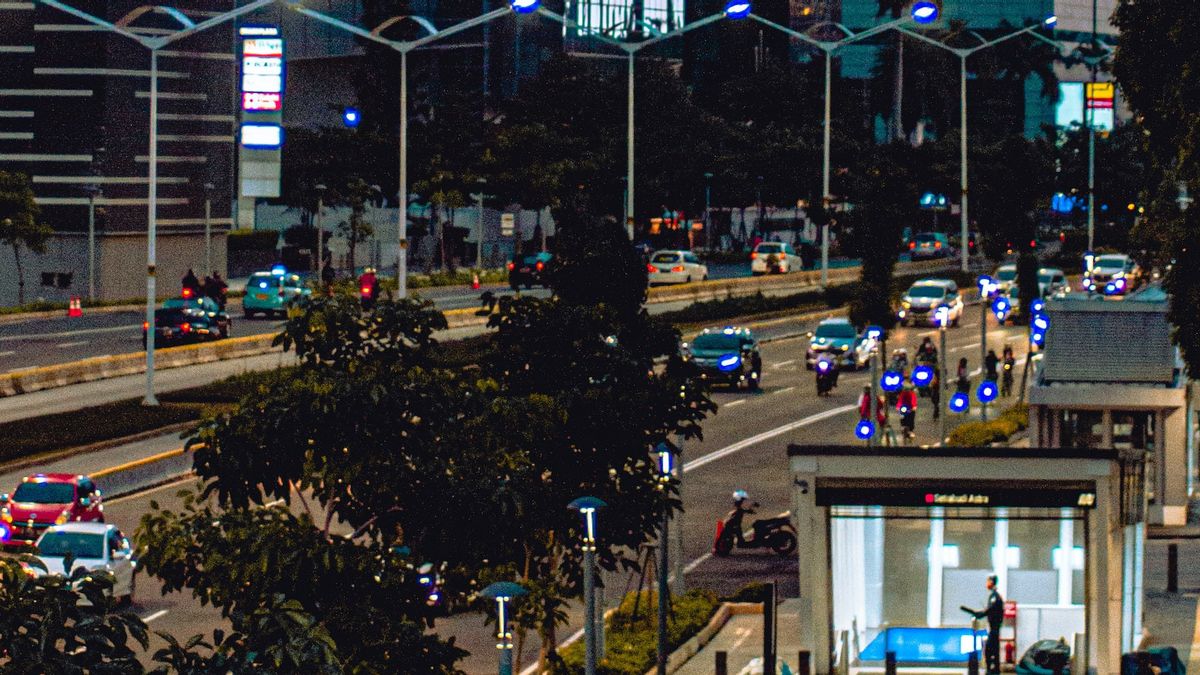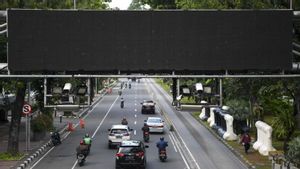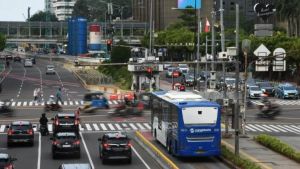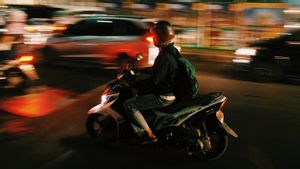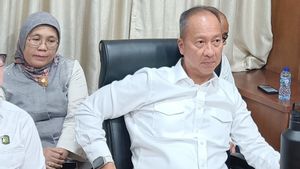JAKARTA - Chairman of Commission B DPRD DKI Jakarta Ismail highlighted four things that must be carefully prepared before the plan for a paid road or electronic road pricing (ERP) in Jakarta is implemented.
One of them is the tariff rate. The Draft Regional Regulation (Raperda) on Electronic Traffic Control (PL2SE) does not stipulate the nominal ERP rate that will be applied.
So far, the DKI Jakarta Transportation Agency has proposed that ERP be charged at IDR 5,000 to IDR 19,000. Ismail said, the amount of the tariff will be determined not in the regional regulations, but in its derivative regulations, namely governor regulations (Pergub).
"This regional regulation will at least become a legal umbrella for the governor regulation. Since it is a consideration for the governor regulation, in this regional regulation we are trying to be as comprehensive as possible the basic points that must be included there. It is possible that the rates will be included in the governor regulation," Ismail said at the DPRD building DKI Jakarta, Monday, January 16.
Regarding the amount of the tariff, the DPRD will also ask for an explanation from the Transportation Agency regarding the considerations for deciding the nominal payment.
"We will question the basis of where these figures come from. There must be calculations," he added.
The second thing is the determination of the party that manages revenue from the electronic traffic control system. In the DKI Transportation Agency's proposal, the DKI Provincial Government plans to hold an auction to private companies whose role is to provide capital and as ERP implementing operators.
Meanwhile, Pemprov DKI acts as an implementing unit that collects paid road fees to enter regional revenues. Here, Ismail sees the need for a special government agency to take care of this.
"Technically, does there have to be a special management unit? We'll see which one is better. In fact, it doesn't rule out the possibility of making it all together like a special BUMD. What is being guided is how the results obtained from paid roads are ensured that services for road users are getting better," he explained.
The third thing, DKI Jakarta Provincial Government needs to prepare a careful plan regarding the management of costs paid by the public for ERP tariffs. And fourth, how to use the funds from the results of the ERP system.
Bearing in mind, based on information received by the DPRD, regional revenues from the implementation of paid roads can reach tens of billions of rupiah per day.
"This must be ensured that the money collected has a significant contribution, especially in terms of improving transportation services, both for road users, users of mass transportation, and so on," he stressed.
For information, a draft Raperda on PL2SE which regulates paid roads has been prepared. Pemprov and DPRD DKI have also held initial discussions regarding the contents of the draft regional regulation, but discussion of article by article has not yet been carried out.
Judging from the draft regional regulation, there are 25 roads that will be subject to ERP implementation, namely Pintu Besar Selatan Street, Gajah Mada Street, Hayam Wuruk Street, Majapahit Street, Medan Merdeka Barat Street, MH Thamrin Street; Jenderal Sudirman Street, Sisingamangaraja Street, Panglima Polim Street, Fatmawati Street (Ketimun 1st Intersection - TB Simatupang Road Intersection).
SEE ALSO:
Then, Suryopranoto Street, Balikpapan Street, Kyai Caringin Street, Tomang Raya Street, Jenderal S Parman Street (intersection of Tomang Raya- Street junction of Gatot Subroto Street), Gatot Subroto Street, MT Haryono Street, DI Panjaitan Street, Jenderal A Yani Street (intersection Bekasi Timur Raya Street-Perintis Kemerdekaan Crossroad), Pramuka Street, Salemba Raya Street, Kramat Raya Street, Pasar Senen Street, Gunung Sahari Street; and, HR Rasuna Said Street.
Then, electronic traffic control in the electronic traffic control area applies every day from 05.00 WIB-22.00 WIB.
The vehicles that are subject to ERP rates are road users using motorized vehicles and electric vehicles. There are a number of vehicles that are exempt from implementing the paid road system, including electric bicycles, public yellow plate motorized vehicles, operational service vehicles for government agencies and the TNI/Polri except/other than black plates, foreign diplomatic corps vehicles, ambulances, hearses, and fire engine.
The amount of the tariff for electronic traffic control services and its adjustments is stipulated by a Governor Regulation after obtaining approval from the DPRD DKI Jakarta. Meanwhile, the DKI Transportation Agency is proposing that ERP be charged at IDR 5,000 to IDR 19,000.
The English, Chinese, Japanese, Arabic, and French versions are automatically generated by the AI. So there may still be inaccuracies in translating, please always see Indonesian as our main language. (system supported by DigitalSiber.id)
